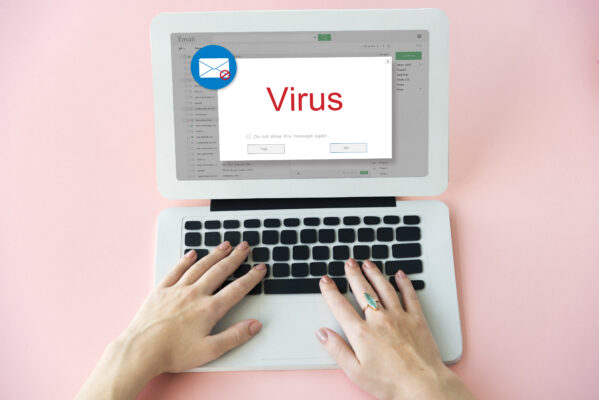
Given the increasingly sensitive nature of the data stored on our devices, it is only natural that we are becoming more concerned with security. Why is it then that we so often hear of users falling victim to phishing attacks and other hacking attempts? This week on the blog, we thought we would discuss the importance of having suitable precautions in place that will protect against viruses and facilitate quick recovery if your device does become infected.
Currently, the most common threats are in the form of so called crypto emails, which have evolved from being more than just spam in your junk folder. Today, these malicious emails are disguised as communication from known organisations, such as Australia Post or the ATO, and are designed to entice users to give up information including credit card details, usernames and passwords.
The links contained within the emails take users to a site where a program is installed onto their computer, subsequently encrypting all files, and in many instances files on the organisations’ network drives as well. Typically, a ransom note then appears seeking payment in exchange for access. Having seen emails such as this, it is unfortunately easy to understand why so many users find themselves in trouble given the convincing design, perfectly mimicking that which would be sent by a legitimate organisation.
Of course viruses aren’t only transmitted through email, with users susceptible to infection every time they access the internet. The impact of said viruses can be widespread, from individual user downtime to loss of files across the network. This results in lost productivity as attempts are made to restore information, with an organisations’ backup strategy truly tested. So, what should users do to ensure they are protected? We recommend the following tools.
Anti-spam
Antispam seeks to block phishing emails before they are received by a user. This generally covers a broad range of filters and scanners that examine emails to determine if they are from suspect sources. At Data UP, the antispam product we use cleans emails prior to them reaching the email server, reducing the instances of them mistakenly being actioned by users.
Anti-virus
Similarly to antispam, antivirus works to prevent, detect and remove malware that is transmitted over the internet. Antivirus is important for all connected devices as the bombardment is constant, and all it takes is one click on a corrupt website for a device to be rendered inoperable.
Offsite backup
As we have discussed in previous blog posts, offsite backup is key in safeguarding an organisations’ data. Should your network be infected with a virus, an offsite backup solution will enable you to restore encrypted or lost information in a timely manner.
As a final point, we would like to stress above all the importance of common sense when users encounter suspicious content. For instance, if you aren’t expecting a parcel from Australia Post, don’t follow the link to arrange another time for delivery. This is a common crypto email that is regularly circulated. Let good judgment prevail by deleting strange emails and not visiting websites you don’t trust.
How do you safeguard your devices and your network against virus breaches? Let us know on Twitter at @DataUPAus.
Should you wish to discuss the implementation of any of the security tools discussed above, please email enquire@dataup.com.au to speak with a member of our team.